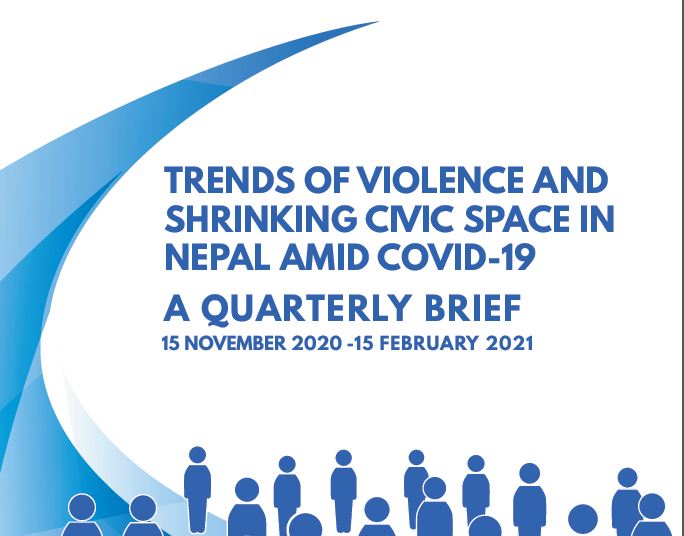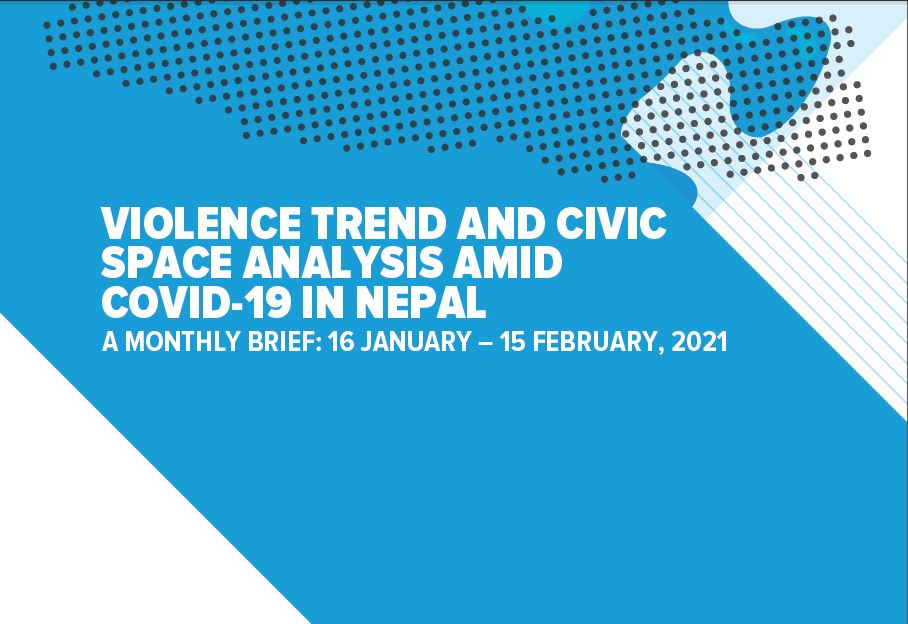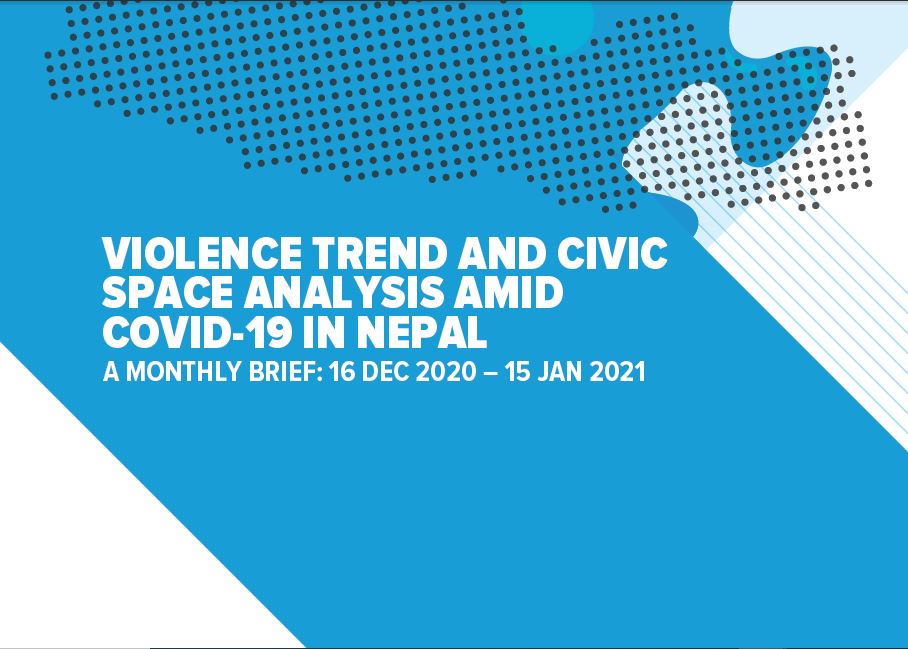Incident Reports
Amid reservations, government bent on amending Human Rights Act
2019-04-26
Nepal
Despite serious reservations from the constitutional rights watchdog, the government looks bent on forwarding the bill to amend the National Human Rights Commission Act-2012, some provisions of which human rights defenders say undermine the commission’s authority.
The government two weeks ago approved the amendment bill, making it mandatory for the commission to recommend the cases it has investigated to the attorney general
who then decides whether or not to proceed the case. The existing Act authorises the commission to write directly to the respective person or agency to execute its recommendations made after the investigation.
The proposed bill, which has been registered at the federal parliament, undermining the existing jurisdiction, gives every authority regarding the implementation of the recommendations by the constitutional body to the attorney general.
The commission has publicly expressed reservations about the bill and asked the government for its revision.
The government, however, looks adamant on its position and committed to presenting the bill for endorsement without revision.
“The government drafted the bill to get it approved by Parliament in the present form,” said Minister for Law and Justice Bhanu Bhakta Dhakal at a programme on Thursday. He said the constitution clearly defines the roles of the attorney general and that was taken into consideration while drafting the amendment bill.
The government will present the bill for endorsement in the budget session of Parliament that commences on April 29.
Officials at the commission, however, say they are saddened by the comments from Dhakal.
Govinda Sharma Paudyal, a member of the commission, said the draft contradicts Article 293 of the constitution, which says constitutional commissions are accountable and answerable only to the federal parliament.
Even parliamentary committees cannot give directives to the human rights commission.
However, Clause 17 (3) of the new bill proposes that the attorney general can request the commission for further investigation or collection of more evidence, if necessary, before deciding to register the case.
“After listening to Minister Dhakal, I have concluded that the government wants the commission to be one of its subordinate offices,” Paudyal told the Post.
He said it was unfortunate that the government was attacking the watchdog while Nepal sits in the United Nations Human Rights Council as a member.
The officials at the commission said the government came up with the bill completely ignoring its 17-point recommendations despite repeated requests from the commission to incorporate them.
It had proposed that there should be no statute of limitation in cases to be filed with the commission.
The commission sought legal clarity in making public the names of the officials, individuals and agencies found guilty of human rights violations or those who fail to follow the recommendations, rulings and directives of the commission.
It also had sought revision allowing it to recommend the compensation up to one million rupees depending on the situation of the victim. The suggestions also included the authority to recommend that the government provide free education and health service, vocational training, residence, employment and other facilities to the victims, if deemed necessary.
Through the amendment, it also sought authority to take action against those in the cases of contempt of the commission. The penalty could be up to Rs20,000 in fine or three months of imprisonment or both. It also had sought legal clarity in opening provincial and other offices within the provinces and appointing the officials as per its need.
The bill, however, proposes removing Sub-clause 2 of Clause 27 of the Act, which would bar the commission from opening regional, sub-regional and contact offices in different parts of the country.
A series of actions of the KP Sharma Oli administration has been a cause for concern in the last one year, as stakeholders have repeatedly said some moves are so draconian that they undermine free speech and press freedom. Immediately after its formation, the government had banned protests at Maitighar Mandala, a move which was retracted following a public backlash.
In February last year, immediately after Oli assumed office, the government assigned sweeping powers to the Prime Minister’s Office and brought three major departments--National Investigation Department, the Department of Revenue Investigation and the Department of Money Laundering Investigation--under the PM. These departments were under various ministries earlier.
A new Information Technology Bill, which gives immense powers to the authorities to block social media platforms if they are not registered in Nepal, has also alarmed the stakeholders, who say its provisions can be misused to curtail freedom of expression.
Human rights defenders say the government is making moves one after another in a way to centralise power.
“The plan to endorse the bill to amend the National Human Rights Act is not only an attack on human rights but also on democracy,” said Paudyal.
http://bit.ly/2L3iksU
Related Reports
Human Rights / Mahottari
Woman subjected to assault and inhumane treatment on witchcraft allegation in Mahottari
Human Rights / Sankhuwasabha
Two killed in prison in Sankhuwasabha: Seven inmates taken into custody for investigation
Interpersonal Violence / Kanchanpur
Inmate being subjected to physical assault and threat in prison accuses family members
Human Rights / Bara
Woman subjected to assault and inhumane treatment on witch craft allegation in Bara
Related Trend Analysis
Analysis

THE NEPAL PEACE MONITOR ANNUAL REVIEW: 2020
October 25, 2021
Human Trafficking / LGBT+ Rights / GBV / Political / Children’s Rights / Senior Citizens’ Rights / HRD Issues / Human Rights / Interpersonal Violence / Governance / Covid-19 / Civic-Space / PwD
Analysis

COCAP BIWEEKLY: INCIDENTS SURROUNDING COVID-19 January 16 - 31, 2021
February 04, 2021
GBV / Human Rights / Governance / Covid-19
Analysis

COCAP BIWEEKLY: INCIDENTS SURROUNDING COVID-19 January 1 - 15, 2021
January 21, 2021
GBV / Human Rights / Governance / Covid-19




